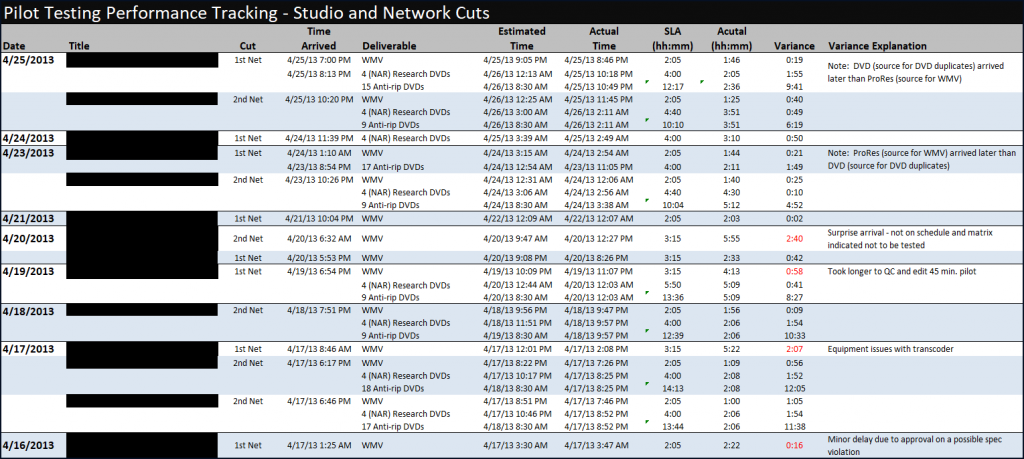Case Study – NBCU Pilot Season
Challenge: Fix a broken process and the relationship between two NBCU business units.
Background
Every year in the late winter, NBC (the television network) goes through a process to choose a few new shows for the next Fall TV season. The network produces anywhere between 20 and 30 individual TV episodes (known as “pilots”). They go through several iterations each, are screened for test audiences as well as TV executives and producers, and ultimately just a handful are chosen.
As part of the process, the on-lot post-production facility, StudioPost, creates hundreds of deliverables (files and DVDs) which go to executives and the audience testing company. The turnaround time from the moment the master file arrives at the facility to when the first deliverables need to go out is measured in minutes.
Problem
My first year at NBCU, due to a change of personnel at StudioPost, when the first pilot master arrived with no warning, it was put through the normal process which had about a 48-hour SLA (Service Level Agreement). NBC tried to reach people at StudioPost to find out what was happening, but the process had broken down so they couldn’t reach it.
The head of StudioPost reached out to my boss to have someone from my team help and I ended up on the project. The NBC team was incensed. The slowness of delivery had impacted their routine and was unacceptable. If StudioPost wanted to keep the work, we had to fix it before the next pilot master was delivered.
Solution
Partnering with the StudioPost Director of Operations, we gathered a team of everyone who had worked on the process in the past and were able to recreate the way it had worked in the past. I then reengineered the process, adding many email updates, some internal some both internal and external to NBC, throughout the process lifecycle (Slack wasn’t a thing yet), and presented it to the team. After some tweaks, we put it into operation when the next file arrived (typically around 7pm). I monitored the email updates, prodding where necessary, and noted the time (down to the minute) each step completed in a tracking spreadsheet which automatically highlighted when we did not hit the SLA.

The next day I sent the spreadsheet out to all relevant members of the team, including the NBC execs.
As can be seen on the spreadsheet, we were not flawless, but simply improving communication eliminated the NBC execs’ anxiety and the fact that we delivered almost perfectly rebuilt the trust between the two business units.
As a footnote, when we invited the NBC execs to our kickoff meeting the following year, their response was (to paraphrase): “We’re good. We trust you.”

